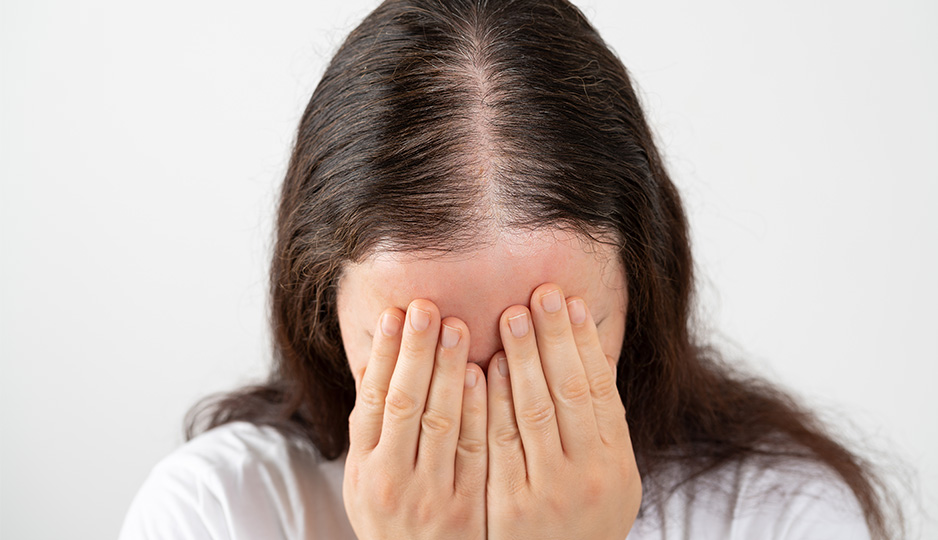Are you a woman experiencing hair loss? Thinning hair may be unexpected, but it can also occur gradually. For many women, identifying the cause of hair loss can be difficult. Combine that with the fact that there are so many myths associated with hair thinning for women, and it can be more difficult to find the best solution.
The good news is that recovering hair loss begins with the right education. Today we're going to discuss a few common myths about women's hair loss to help you get you on the right track.
5 Common Hair Loss Myths for Women
Myth #1: Your Mother Has Thinning Hair, So You Will Too
While genetics can play a role in hair loss, this doesn't necessarily mean that you will have hair loss if your mother does. For starters, there are certain types of hair loss that are genetic, such as androgenic alopecia. But genetics alone does not always determine whether your hair will begin to thin.
In actuality, hair loss may be a combination of genetics and environmental factors. For this reason, genetics may make you predisposed to hair thinning, but certain environmental factors such as overexposure to sunlight or stress can trigger thinning hair.
Myth #2: The Right Hair Care Product Will Fix It
The quest to find the perfect hair care product is often the first solution when a woman discovers thinning hair. But finding the next promising hair care product shouldn't necessarily be your first resort.
This is because some products can actually cause your hair more harm than good. Many products on the market contain toxic ingredients that stress your hair follicles and can disrupt your hair's growth cycle by causing inflammation and affecting your hormones. If you're unsure about whether a product is hurting your hair, consult with a hair care professional before continuing to use it.
Myth #3: Hair Dye Causes Thinning
Many women believe that dyeing their hair will cause it to thin, but this isn't necessarily the case. Yes, hair dye can damage your hair when done too often and improperly. But, with the right practices, hair dye shouldn't cause hair loss. When using hair dye, it's best to use gentle products and consider going to a hair care specialist who can properly apply it.
Myth #4: Younger Women Shouldn't Worry About Hair Loss
Hereditary hair loss generally begins after the age of 40. But, this doesn't mean that younger women are protected from hair loss. Hair loss can happen at any age and is usually a result of a variety of environmental factors.
For instance, stress and over-styling can cause your hair to thin earlier than expected. Additionally, certain genetic factors that make women predisposed to hair loss can lead to hair thinning early.
Myth #5: There's Nothing You Can Do About It
For some women, dealing with hair loss is a journey. But, finding a solution to hair loss is certainly not a lost cause. Treating hair loss is possible with the right education and treatment plan.
For instance, if your hair loss is a result of certain environmental factors, changing your lifestyle may help. Stress is one common factor that causes hair loss. If you're dealing with excessive stress, it's important to focus on alleviating stressful factors which can help improve hair loss.
Another environmental factor that contributes to hair loss is cigarette smoke. The carcinogens in cigarette smoke weaken your hair follicles. If you're a smoker, consider stopping.
Overexposure to the sun also causes hair loss. If you expect to be in the sun for too long, consider wearing scarves, a hat, and SPF hair products catered to protect your hair.
If your hair loss is due to genetics, there are some products available designed to recover hereditary hair loss. Be sure to consult a professional to get a customized hair loss solution before purchasing any products.
Restore Your Hair With LH Hair
Hair loss is a common problem that many women experience. If you're looking for a hair restoration solution, contact us today to get a free consultation. We're excited to help you on your hair restoration journey.



